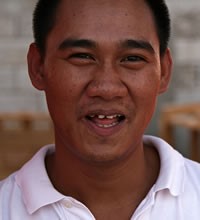Tagalog is the largest ethnic/language group residing in the Philippines, especially in the southern part of Luzon and nearby islands. The regions of Calabarzon and Mimaropa have the greatest concentrations.
They are one of the ancient dwellers of the Philippines. Tagalog culture developed in Taal, Batangas (the heartland of the Tagalog culture). The traditions of this people were passed orally. They developed a trading link with neighboring countries such as China, Japan, etc. Tagalogs have a writing system called baybayin. It uses diacritics to determine its pronunciation (similar to the Devanagari script of India).
During the Spanish colonization of the Philippines, the Tagalog homeland (especially Manila) became the center of colonial activity. During their rapid Christianization, the culture of these people dramatically changed from Asian to Hispanic (a combination of the two).
They eventually revolted against the Spanish colonizers. Along with other ethnic groups, Tagalogs fought against the invading Americans and later, the Japanese.
After gaining their independence, the Tagalog population grew rapidly. A poor economy and political corruption have led to poverty, causing many to migrate to 56 countries for work, including Norway.
Tagalogs in Norway earn far more than they would had they remained in the Philippines. About three-fourths work in the maritime industry while the other fourth are in land-based occupations, especially in the health care industry, IT and engineering.
Many Filipinos are Roman Catholics with a mixture of animistic beliefs. Many of them are considered Roman Catholics at birth and, therefore, only follow the customs and traditions they learn. Some of these customs include attending the Catholic mass and reciting the rosary (prayer to the Virgin Mary using a beaded-type of necklace). They also believe in holy objects such as holy water (water blessed by the priest), praying to images or pictures of Jesus and Mary. Many view the Virgin Mary as an intercessor for their personal needs to Jesus. Moreover, they believe that touching certain images will bring them blessings. Finally, they believe in and venerate people who are now dead and have reached "sainthood."PRGRPHThere is also a strong Evangelical element among Talagog speaking Filipino Christians.
Many Tagalogs are vibrant Christians. They can be ambassadors for Christ, especially in places with a hard to reach Muslim population like Malaysia.
Pray for the Lord to be their protector.
Pray for Tagalogs to focus their faith and devotion on Jesus Christ, the only savior.
Pray for them to become a major sending base to Muslims.
Pray that soon Tagalog disciples will be making more disciples.
Scripture Prayers for the Filipino, Tagalog in Norway.
Anonymous
https://en.wikipedia.org/wiki/Overseas_Filipinos
https://en.wikipedia.org/wiki/Filipinos_in_Norway
| Profile Source: Joshua Project |











